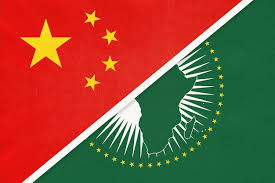Published: July 16,2024
By Staff Writer

China’s remarkable economic transformation over the past few decades stands as a testament to what focused policies, strategic planning, and sustained effort can achieve. From being a largely agrarian society to becoming the world’s second-largest economy, China’s development trajectory offers valuable insights for Africa as it seeks to navigate its own path to sustainable growth and development.
One of the key lessons Africa can draw from China’s experience is the importance of long-term planning and consistency in policy implementation. China’s leaders set ambitious goals and implemented policies that supported industrialization, infrastructure development, and technological advancement over several decades. This continuity provided businesses with the confidence to invest and plan for the future, contributing to China’s rapid economic expansion.
Infrastructure development played a crucial role in China’s growth story and remains a priority for many African nations today. China invested heavily in building roads, bridges, ports, and other critical infrastructure, which not only facilitated economic activities but also connected remote regions to urban centers. This infrastructure development was complemented by investments in education and healthcare, laying the groundwork for sustained human capital development.
Moreover, China’s proactive approach to international trade and investment has enabled it to become a global economic powerhouse. By opening up its economy to foreign investment and actively engaging in international trade, China created opportunities for its businesses to access global markets and technologies. Africa can similarly benefit from fostering a conduciveenvironment for investment, enhancing trade relations, and participating actively in regional and international trade agreements.
China’s emphasis on innovation and technology has been another key driver of its economic success. The country has invested heavily in research and development (R&D), leading to breakthroughs in various sectors such as telecommunications, renewable energy, and artificial intelligence. African countries can leverage China’s experience by investing in R&D, fostering innovation hubs, and promoting collaboration between academia, industry, and government.
Additionally, China’s experience highlights the importance of agriculture in economic development. Initially, agriculture formed the backbone of China’s economy, providing food security and employment for millions. Over time, China implemented policies to modernize its agricultural sector, increase productivity, and enhance rural development. African nations, with their vast agricultural potential, can learn from China’s agricultural policies and investments to improve food security, increase rural incomes, and stimulate broader economic growth.
Furthermore, China’s experience with urbanization offers valuable lessons for Africa as it experiences rapid urban growth. China managed urbanization by planning and developing cities that could accommodate population influxes, providing housing, infrastructure, and essential services to urban residents. African countries can benefit from adopting sustainable urban planning practices to address the challenges posed by rapid urbanization, such as housing shortages, traffic congestion, and environmental degradation.
However, it is essential to recognize that while China’s development model offers valuable insights, Africa must tailor these lessons to its unique circumstances and challenges. The continent is diverse, with varying levels of development, governance structures, and resource endowments. Therefore, African nations should prioritize policies that are inclusive, sustainable, and responsive to the needs of their populations.
Moreover, China’s development has not been without challenges, including environmental degradation, income inequality, and social disparities. African countries can learn from China’s experiences in managing these challenges, ensuring that economic growth is equitable, environmentally sustainable, and benefits all segments of society.
China’s development offers valuable insights for Africa as it seeks to achieve sustainable growth and development. By emphasizing long-term planning, infrastructure development, innovation, and inclusive growth, African nations can overcome their development challenges and unlock their full economic potential. However, adapting these lessons to local contexts and addressing specific challenges will be crucial in realizing Africa’s developmental aspirations.
Learning from China’s development is not about replicating a model but understanding the underlying principles and adapting them to Africa’s unique circumstances. With careful planning, strategic investments, and a commitment to inclusive development, African nations can chart a path towards prosperity and improve the quality of life for their citizens in the decades to come.
 Africa -China Review Africa -China Cooperation and Transformation
Africa -China Review Africa -China Cooperation and Transformation
